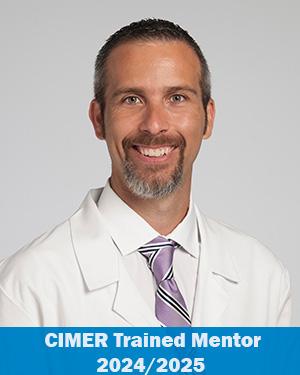Research News
12/19/2018
Multi-National Genetic Study of Parkinson’s Disease in Latinos
An international genetic research collaboration, headed by Ignacio Mata, PhD, of Cleveland Clinic's Genomic Medicine Institute, seeks to identify new susceptibility genes in Latinos.

The identification of gene variants that cause or lead to Parkinson's disease (PD) has revolutionized the medical research field by identifying novel targets for the development of precision treatments. However, the vast majority of these studies have been conducted in populations of European or Asian ancestry. No large-scale PD genetic studies have ever been conducted in Latino populations.
Without large-scale PD genetic studies in the Latino population, millions of people may never know the benefits of advancements in precision medicine. An international genetic research collaboration, headed by Ignacio Mata, PhD, of Cleveland Clinic's Genomic Medicine Institute, seeks to identify new susceptibility genes in Latinos and sequence known causal genes in familial forms to identify novel causal variants.
In collaboration with investigators from 12 institutions in many South American countries, Dr. Mata established the Latin America Research Consortium on the Genetics of Parkinson's Disease (LARGE-PD). Dr. Mata hopes the LARGE-PD, the world's largest PD case-control cohort of Latinos (more than 2,000 PD patients and 2,000 healthy controls), will improve the understanding of general and PD-related characteristics of Latinos and ensure that this population can access precision medicine-era treatments for PD. "If we don't know more about common risk variants in this population," according to Dr. Mata, "we won't be able to offer [Latinos] the right care, useful genetic counseling and testing services, or opportunities to enroll in future precision medicine clinical trials."
PD is a common neurodegenerative disorder with symptoms that generally progress slowly over a number of years, including tremor, slowness of movement, limb rigidity and problems with gait and balance. Worldwide, it is estimated that more than 10 million people are living with PD. PD affects people of all races; however, certain races seem more affected than others. In one study, after adjusting for age and gender, the incidence rate per 100,000 was highest among Hispanics (16.6, 95% CI: 12.0, 21.3), followed by non-Hispanic Whites (13.6, 95% CI: 11.5, 15.7), Asians (11.3, 95% CI: 7.2, 15.3), and Blacks (10.2, 95% CI: 6.4, 14.0).
While genetic research in PD has revealed at least 8 causal genes (SNCA, PARK2, PINK1, DJ-1, LRRK2, VPS35, DNAJC13 and RAB39B) and 30 susceptibility variants (e.g., GBA), the importance of these genes in PD in Latinos remains unknown. Interestingly, Dr. Mata and others have shown that some of these variants are very rare or absent in Latinos, which means there may be novel variants or genes involved in the development of PD in this population. Dr. Mata is currently using novel genotyping and analytics to explore data from the LARGE-PD cohort to better understand the role of known causal and susceptibility variants. Mata's team also seeks to identify novel causal variants by studying families in which no causal variant was found in genes known to cause PD.
Dr. Mata said, "We are confident that our study, and others like it, will reduce existing gaps in healthcare access by allowing Latinos to be active participants in clinical trials and novel treatments designed to protect and/or treat individuals with specific genetic variants, the so called personalized medicine."
Dr. Mata recently joined Cleveland Clinic's Genomic Medicine Institute. Previously, he was a Research Assistant Professor in the Department of Neurology at the University of Washington and a researcher at the Geriatric Research Education and Clinical Center, VA Puget Sound Health Care System. Dr. Mata earned his doctorate in neurogenetics from the Universidad de Oviedo/Hospital Universitario Central de Asturias, Asturias, Spain, in collaboration with the Mayo Clinic in Jacksonville, Florida.
Featured Experts
News Category
Related News
Research areas
Want To Support Ground-Breaking Research at Cleveland Clinic?
Discover how you can help Cleveland Clinic save lives and continue to lead the transformation of healthcare.
Give to Cleveland Clinic